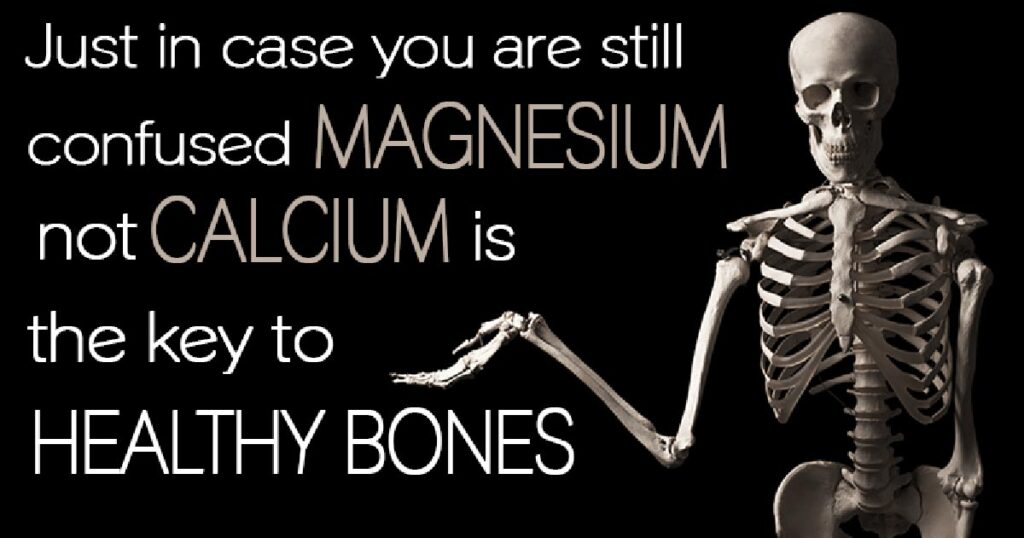Magnesium (Mg)
Dr. med. Heinz Lüscher
Magnesium is an essential mineral with numerous functions in the human body. It catalyzes about 800 chemical reactions in the body as a co-factor and is therefore a key mineral. However, an estimated 80% of all people in our latitudes have a deficiency, with corresponding complaints. Magnesium deficiency plays a major role in about 100 diseases.
An underestimated mineral
Blood tests in doctors’ offices and hospitals practically always measure the minerals calcium, potassium, sodium and chloride, but the even more important magnesium is practically never measured. Unfortunately, conventional medicine has not yet recognized the importance of magnesium.
Magnesium (Mg) in the video
Learn more about magnesium and the vital substances it contains in the video with Dr. Heinz Lüscher.
Important to know:
The body always keeps the Mg level in the blood constant because Mg is essential for heart function (the heart is a muscle). To keep the blood level constant, Mg is drawn from bones and muscles in case of deficiency. Therefore, with a normal Mg blood level, there can still be a glaring deficiency in the cells and tissues.
Fundamental statements in this article are based on the publications of the two magnesium specialists Dr. Carolyn Dean and Dr. Mark Sircus.
Dean, Carolyn (2016): «Magnesium. Das Wundermineral als Schlüssel für Ihre Gesundheit. Rottenburg.Sircus, Mark (2018): Gesammelte Artikel zu Magnesium. Abgerufen unter http://drsircus.com/magnesium/ (Januar 2018).

Some important functions of magnesium
- Catalyses approx. 800 chemical reactions in the body as a co-factor
- produces and transports energy
- synthesizes proteins
- transmits nerve signals
- relaxes the muscles
- Influences the immune system
What foods contain magnesium?
Magnesium suppliers include cereal products, pseudocereals, nuts, seeds, legumes, green vegetables and fruits. Dairy products, fish and meat also contain magnesium. Unfortunately, nowadays the content is often insufficient.

Magnesium and Calcium
Magnesium has an antagonist; calcium. Magnesium controls in the cell membrane how much calcium enters the cell. It makes sure to increase the amount of calcium in the bones and teeth and minimize the amount of calcium in the soft tissues (muscle, liver, nerve tissue and others). Because that’s the way it should be. However, with a magnesium deficiency, not enough calcium may reach bone cells, increasing the risk of developing osteoporosis. At the same time, a deficiency of magnesium may increase the risk of having too much calcium in the cells of soft tissues. However, this stresses these cells and causes them to release various pro-inflammatory substances.
Occasionally we can read that magnesium and calcium should not be taken together because the two minerals interfere with each other’s absorption by the intestine. Yet, both magnesium and calcium are essential for the smooth running of certain bio-chemical processes in the body. Even if the two minerals perform partially opposite tasks (e. g. in the muscle cells), it is important that we eat enough food in a ratio of approx. 1:2 to 2:1. (Mg to Ca) The problem arises when you take a lot of minerals from one mineral and very little from another. In this case, the latter can become under-supplied. Most people in the West receive more than enough calcium with their food, even if for example, they only consume a small amount of dairy products. A supplementation of calcium is therefore not necessary. Rather, it is magnesium, which is threatened with a deficiency.
Calcium is important for healthy bones and teeth. If too much of it floats around the bloodstream, dangerous deposits may form in the blood vessels that can lead to heart attacks (arteriosclerosis). Therefore, it is important to ensure an adequate supply of vitamin K2. The task of this is to remove excess calcium from the bloodstream and ensure its incorporation into the bones.
Influence of magnesium in a number of diseases
Mg and osteoporosis
Mg plays just as an important a role in bone health as does calcium. Anyone who ignores magnesium in osteoporosis will never be able to treat this disease successfully. Osteoporosis has no hormonal cause, but is a consequence of the lack of Mg, vitamin D and vitamin K2. In a study of post-menopausal women, osteoporosis could be stopped by solely administering magnesium.
Sojka, J. E. und Weaver, C.M.: «Magnesium supplementation and osteoporosis». Nutrition Reviews, März 1995, 53 (3) 71-74.
My suggested treatment of osteoporosis:
Magnesium: 800-1000 mg / day
Vitamin D3: 4000 I.E. / day
Vitamin K2: ca. 200 µg / day
No additional calcium is needed. This treatment lasts 1-2 years and can be carried out at any age.

Mg und Migraine
Migraine can have several causes, which are usually not ever discovered, but magnesium deficiency is definitely a compelling cause. Magnesium can prevent spasms of small blood vessels in the brain as well as relieve tension in head and neck muscles. Both of these factors work against migraines. In a study of 3,000 migraine patients who received 200 mg magnesium daily, migraine symptoms were reduced by 80%.
Mauskop, A. und Fox, B.: «What your doctor may not tell you about migraines». Warner Books, New York, 2001.

Mg and Depression
Magnesium is needed for the release of the “feel-good hormone” serotonin! Antidepressants, known as selective serotonin re-uptake inhibitors (SSRIs), can relieve depression in some cases, but not always. With magnesium, the serotonin levels in the brain can be increased in a natural way without artificially interfering with brains chemistry.
Cox, R.H., Shealy, C.N. et al : «significant magnesium deficiency in depression». The journal of Neurological and Orthopaedic Medicine and Surgery, 1996, 17: 7-9.
Mg und Heart Disease
The positive influence of magnesium on the heart has been known since the 1930s. Magnesium researcher Dr. Michael Shechter has been able to demonstrate the benefits of magnesium in heart disease since 2000. The so-called LIMIT studies (Leicester Intravenous Magnesium Intervention Trial), published in the renowned journal “The Lancet” in 1992 and 1994, described a massive improvement in the chances of survival after a heart attack, if magnesium is administered early on. Below are two of several studies by Dr. Shechter:
Shechter, M. und Shechter, A.: «Magnesium and myocardial infarction». Clinical Calcium, November 2005, 15 (11): 111-115.
Shechter, M. et al: «Oral magnesium therapy improves endothelial function in patients with coronary artery disease». Circulation, 7. November 2000, 102(19) 2553-2558.

Mg and cholesterol / high blood pressure
Eating habits that increase cholesterol are always accompanied by a magnesium deficiency. Magnesium lowers the cholesterol level in the same way as the drug class of statins. Both reduce the formation of HMG-CoA reductase, an enzyme required for the formation of cholesterol. The two physicians Dr. Andrea Rosanoff and Dr. Mildred Seelig report in their book of 18 human studies in which the total cholesterol level could be reduced by 6-23% and the LDL level by 10-18% through sole treatment with magnesium and the HDL level (“good cholesterol”) could be raised by 4-11%..
Rosanoff, A. and Seelig, M.S.: «Comparison of mechanism and functional effects of magnesium and statin pharmaceuticals». Journal of the American College of Nutrition, 2004, 23(5): 501S-505S.
High blood pressure (hypertension) often has to do with the fact that many people drink too little water, which leads to dehydration. If diuretics are now prescribed against high blood pressure, not only is the lack of water in the body intensified, but magnesium and potassium are also flushed out, which further increases blood pressure. Hypertension should therefore always be treated with consuming lots of water and taking magnesium before taking any other medication.
Influence on the immune system
Magnesium continues to play a role in the immune system. A deficiency of magnesium can promote or even cause chronic inflammation. “Silent” inflammation often goes unrecognized for a long time because symptoms tend to be diffuse, but it puts the immune system on permanent alert, strains the entire metabolism and can lead to chronic inflammatory diseases.
A group of researchers from Mexico, Australia and Iran examined 11 randomized controlled trials. Their focus was on the effect of magnesium on so-called CRP (C-reactive protein), an inflammatory marker that can be measured in the blood. When inflammation occurs in the body, it releases certain substances such as CRP into the blood as part of the immune response. The CRP value can therefore be used as a parameter to determine the severity of an inflammation. The higher the CRP value, the more severe the inflammation. In those study participants in whom the CRP was elevated, i.e. who suffered from inflammation, it was observed that magnesium supplementation caused a significant reduction in the CRP level. However, in participants without signs of inflammation, no effect on CRP was observed; magnesium in physiological doses does not affect the body beyond a healthy level.
https://pubmed.ncbi.nlm.nih.gov/28545353/
https://www.nutraingredients.com/Article/2017/06/08/Magnesium-supplements-show-potential-anti-inflammatory-effects-Meta-analysis
In previous studies, researchers decreased magnesium levels in rats. The animals then developed clinical signs of inflammation. Lymphocytes and macrophages (white blood cells) were activated, and increased production of cytokines (play an important role in coordinating immune defenses) and free radicals was observed. As soon as the rats received sufficient amounts of magnesium, the inflammatory processes rapidly decreased.
Precisely because many people are deficient in magnesium, I use it in all cases where it is important to support the immune system.
Mg requirements and dosage
The magnesium content in many fruits and vegetables is too low due to our exhausted soils. Only 70-80% of our magnesium requirement is derived from food. The minimum magnesium requirement is (always per kg body weight per day):
Healthy adult: 6 mg
Children: 7-10 mg
Athletes: 7-10 mg
Pregnancy: 10-15 mg
The daily requirement for an adult is therefore 400-800 mg per day. It takes at least 1 year with this dosage until a deficiency in bones and muscles is replenished. The first effects are expected at the earliest after about four weeks, because the body has to get used to the increased Magnesium supply and all the necessary carrier molecules first have to be formed.
Magnesium is not toxic. If someone takes too much magnesium, the intestine reacts with diarrhoea and excretes the excess magnesium.
Recommended Mg products
There are approx. 20 different Magnesium salts with completely different properties in the medical trade, especially with regard to bio-availability (absorption by the intestine). Also, the content of pure magnesium is different in each salt (between 6 and 50%). The above information on daily requirements therefore always refer to pure, elementary magnesium and not to a specific magnesium salt. The best-selling magnesium salt is magnesium citrate, but I do not recommend it because it has a strong laxative effect and binds iron. A preparation containing several different Mg salts is recommended as the ideal.
Studies on magnesium:
Effects of magnesium supplementation on subjective anxiety: https://www.ncbi.nlm.nih.gov/pubmed/27869100
Magnesium for migraine: https://www.ncbi.nlm.nih.gov/pubmed/22426836
Magnesium and depression: https://www.ncbi.nlm.nih.gov/pubmed/23950577
Effect of magnesium supplementation on cardiovascular risk factors associated with type 2 diabetes: https://www.ncbi.nlm.nih.gov/pubmed/28150351
